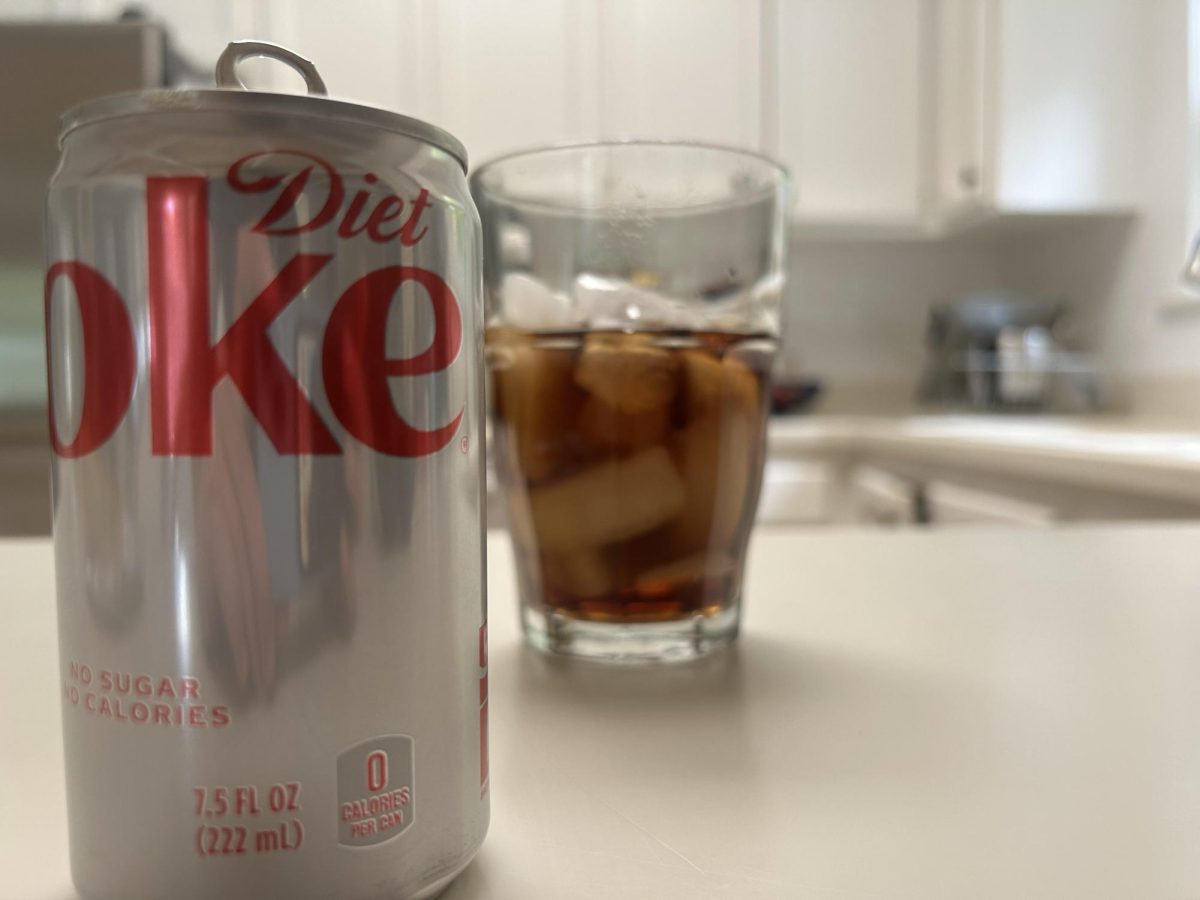Social media is a place for sharing thoughts, ideas, creations and opinions with the world. It’s also an industry where many people can advertise their businesses and make profits based on trends or styles. In recent years, the fitness industry has exploded in popularity. With the recent addition of TikTok Shop, many influencers have utilized the platform to promote and sell items such as gym wear, supplements and equipment, capitalizing off the booming industry. The influencers claim these products help improve appearance and physique, but, the truth is most of these items are not what they seem. Junior Nicolas Schluessel is an aspiring social media influencer and bodybuilder who has seen false advertisements on different platforms.

“These [influencers], who are sponsored, want to sell a product. In every industry, no matter where you go, there will be some kind of false advertisement, especially with supplements and social influence,” Schluessel said.
According to PR Daily, “Depending on your exact algorithmic mix, roughly 30 percent of videos will try to get consumers to buy something in some way.” Additionally, according to The Social Shepard, “The average user opens TikTok twenty times a day.” This means that in those twenty times that a person opens the app, roughly six videos will be an advertisement attempting to sell a product.
Most gym-related products are generally promoted by sponsored influencers as they are visually appealing to their audience. These influencers use their conventionally attractive bodies and muscles to rope in the consumer and persuade them to buy their products. Despite this, Schluessel believes that influencers still have the power to be motivating in a positive way.
“I like to think it can be motivating when you see somebody with a good physique [offering you products]. That is what attracts people into [bodybuilding or working out], it can benefit people by inspiring them to be more active, but I can see why you can argue the other way, as most people won’t end up like the people they see online,” Schluessel said.
Junior and SF Fitness member Tobias Foster does not use social media for a variety of reasons, mainly due to the false reality that social media represents.
“Relating to fitness, [social media] gives people a false sense of hope, that people who try these supplements [will be the same] might be a little misleading,” Foster said.
In addition, some influencers such as The Tren Twins promote illegal steroids or performance-enhancing drugs such as trenbolone (tren), testosterone boosters and other anabolic steroids. These promotions can be seriously dangerous as performance-enhancing drugs can have major physical and mental side effects that can shorten one’s life expectancy and cause mental illnesses such as depression and anxiety.
“For certain people who are outside the bodybuilding or lifting circle, it can be misleading to take [what they think are] supplements,” Schluessel said.
Although many internet users have enhanced their physiques, whether through photo editing or in a more dangerous manner like through the use of steroids, not every influencer is unnatural.

“For me and for my career, I think the most realistic thing would be to have sponsorships from clothing companies or a supplement company… I’m going to be natural and I want my [image] to be based around that,” Schluessel said.
He argues the importance of transparency on social media, because of the commitment it takes to see results in the gym.
“It takes so much effort to get stronger and bigger, it’s a whole different thing. People use steroids to de-value what they’ve done in the gym… I think transparency is important,” Schluessel said.
As many enhanced influencers claim to be natural, more issues can occur. Body dysmorphia is a mental illness that many in the fitness community suffer from. As enhanced influencers continue to receive sponsorships and promotions, body dysmorphia will only rise.
Junior and Bay Club member Ryan Judson finds social media to be a major contributor to body dysmorphia.
“You can compare yourself to [enhanced influencers], creating an ongoing cycle of comparison which is unhealthy,” Judson said.
In order to combat the spread of misinformation on social media, there are different ways in which you can determine what is healthy for you to consume and how to prevent advertisements about unhealthy material. Ways to protect yourself include using reliable sources, avoiding potentially misleading videos that have sponsorships and looking into how professionals approach fitness and bodybuilding.
In order to combat the spread of misinformation on social media, there are different ways in which you can determine what is healthy for you to consume and how to prevent advertisements about unhealthy material. Ways to protect yourself include using reliable sources, avoiding potentially misleading videos that have sponsorships and looking into how professionals approach fitness and bodybuilding.
As false advertising continues to grow on TikTok and social media, it is important to find alternative ways to receive the information you seek.
“I use a source like Google to do research based on the gym. You could also talk to a more experienced friend [for information] which has helped me,” Judson said.
Looking into reputable sources can majorly benefit one’s research. By using untrustworthy sources such as TikTok, one is at greater risk of being misinformed. To avoid scams on TikTok Shop, look into the primary website of the product you are looking for and look into it there before purchasing.
“Finding what step is best for you, with your own sources and where you get your information, can help; putting more research into [fitness related content] you see on social media can help too,” Foster said.
The fitness industry can be misleading at times, leading to the spread of false information and can ultimately cause the consumer to be affected both mentally and physically. However, as the industry only continues to grow, it is important to determine what is real and what is fake online.








